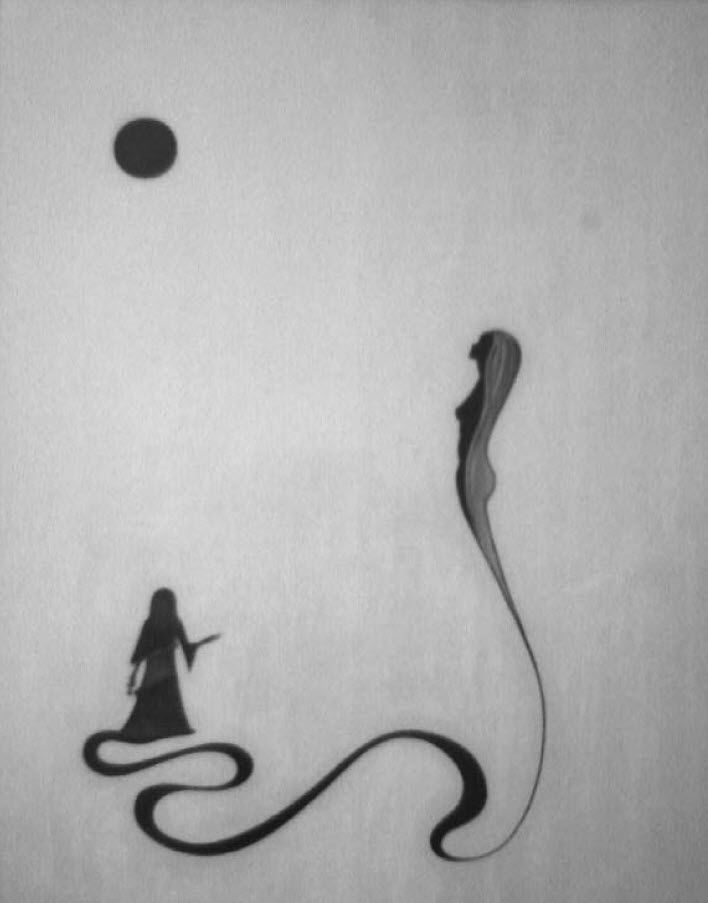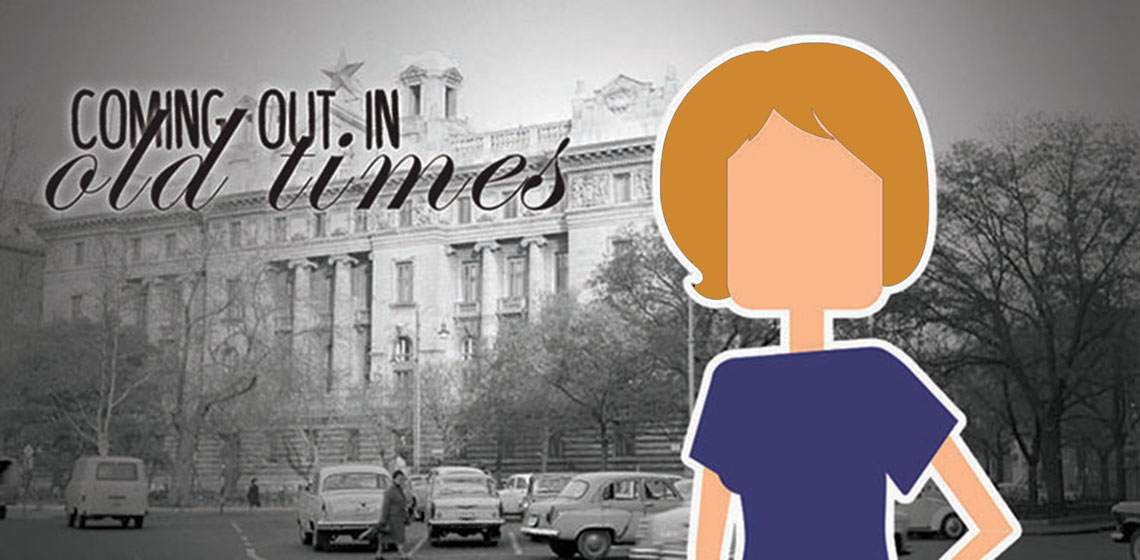Back in the Communist era coming out was an unknown concept. You could read about homosexuality only in encyclopaedias, but what you could find there could only scare you if you wanted to identify yourself. In the eyes of society a woman was more acceptable if she had a husband or was at least divorced. Sarolta Gábor spoke about these topics in her interview.
In 2008 Labrisz Lesbian Association started a lesbian herstory project, making interviews with lesbians above 45 in order to create the basis of an archive and an edited volume. "Secret Years", a documentary based on 11 interviews was shown in the 2009 LIFT Festival, the volume of interviews with a similar title was published in 2011 with 16 lesbian life histories. The five more interviews with women who already lived their adult and lesbian life (accepting themselves and trying to find relationships, communities) back in the Socialist era, are only in the book. We are now sharing the stories of these five women.
Dorottya Rédai: When you were in high school, did you already know that you were a lesbian? Did you know that this was a feeling you had to hide?
Sarolta Gábor: It developed slowly. I had to look it up in the dictionary to figure out what it was.
DR: And what did the dictionary say?
SG: Horrible things! Those were all old dictionaries, so they described it not only as a sin, but as a perversion, something terrible.
DR: Was there a separate entry on female homosexuality?
SG: The old dictionaries had an entry on ‘homosexuality’. It primarily discussed male homosexuality, but female homosexuality was mentioned, too. Even then it was noted that female homosexuality – the word ‘lesbian’ wasn’t used yet – was more tolerated by society. As far as I know, in Hungary you could get sentenced to jail for male homosexuality, but not for female homosexuality. If you were a woman, you would face social exclusion, persecution, and rejection from your family, but there wasn’t any legal punishment.
DR: Maybe it was easier for homosexual women to be invisible than homosexual men.
SG: Maybe. And I think a lot of women don’t even realize they’re lesbians. It’s still hard, even today. (...)
DR: How did you choose this way of life despite everything?
SG: It was not like that at all! Coming out and self-identification – these terms were completely meaningless in those days. They were unheard of. We suffered such a lack of information that I had no clue about what two women could actually do with each other. I was twenty already, but I couldn’t imagine how to reach sexual satisfaction besides kissing and a little bit of caressing.

DR: Did you know anyone whom you suspected that she was also attracted to women?
SG: Nobody. Oh, and another important thing I want to add – I’m going to jump ahead a little to when I was in my twenties and thirties – about why I couldn’t find a partner and have a relationship then. There two social groups where I could have found someone similar to me. One was artists. This has always been more accepted there. But a professional didn’t really have any contacts with the world of artists. The other option would have been to move down the social ladder a bit and go to bars and join the nightlife. There weren’t many bars at the time, but I could have found a partner there. But for someone of my upbringing and social standing, that wasn’t an option. I’ve never been to such places in my life.
DR: So your different identities intersected in such a way that you couldn’t find a partner.
SG: Exactly! Later I talked to people of my age. They all moved down the social ladder and that’s how they found each other. Not me. There must have been people like me in my circles too, but they too had to keep hidden. They either led secret lives, or they repressed it and lived alone or got married, like me. So they tried to get integrated. (...)
DR: How long were you married?
SG: For a year. Not even a year, actually, just half a year. It was an attempt. Of course, the biggest obstacle was sex, which didn’t work at all. My husband was a very nice man, he had good people in his family, and he was a kind, modest, decent boy. He initiated the divorce, which was a huge relief for me. During the divorce proceedings, his suspicion that I was other did come up, but two of my female friends testified against it as witnesses. Of course, I was a little in love with both of them at the time, and they even knew, but they still stood loyally by me at court. This happened in Budapest, after I graduated from university.
First I lived in a rented room, then in a small loft which was practically mine, although I didn’t own it. But after the divorce I felt free: I worked, I liked my job, and I was a divorced woman. Before, it was terrible, people kept asking, “How come you aren’t married yet?” It was much better to be a divorced woman; it was a totally different social status. And afterwards I was glad that things had turned out the way they had, because from then on I could always say I had been married. Of course, I didn’t mention that it only lasted half a year. I would say, “My marriage was so bad, I could never marry again!” It sounded completely different than “You old maid, no one ever wanted to marry you?” Being single wasn’t a fashionable lifestyle at the time.
DR: Who was the first woman you had a relationship with?
SG: She was ten years older than me. She wasn’t a lesbian but a bisexual. She was already with her second husband, and she had two teenage children from her first marriage. When I was young, I used to get sick very often, and I went through several sanatoriums, including Mátraháza. It was like the Hungarian version of Magic Mountain [in the Thomas Mann novel]. There were love stories and it was very, very interesting.
I met her in the sanatorium, too, where she was my roommate. But at the time I wasn’t in love with her. But when the divorce proceedings started I needed one more witness to testify in my defence, and since we had been roommates, I went to look for her. And it was really a bit of a search, because I didn’t know where she lived. After that we became friends, and she initiated things. Her nickname was Feri.24 But she was a woman. In every way.
If you are interested in the life stories of these 16 women, you can access the volume of interviews "Secret Years" here.
To contact Labrisz Lesbian Association, you can write them here: info@labrisz.hu

